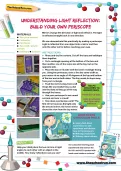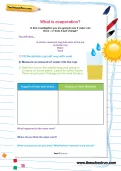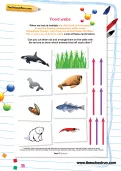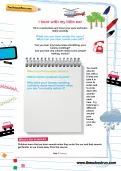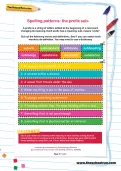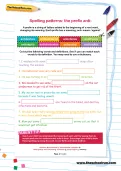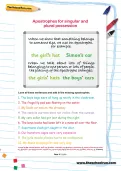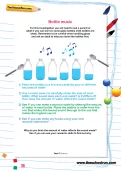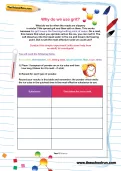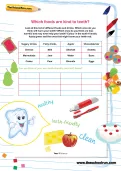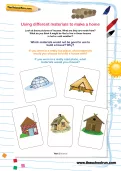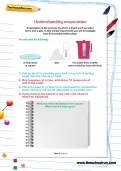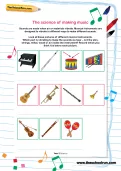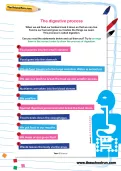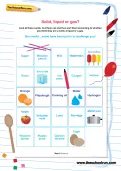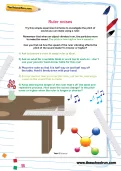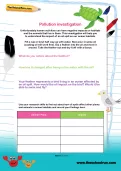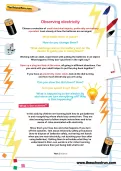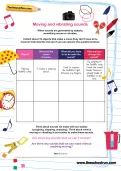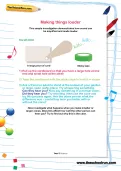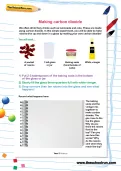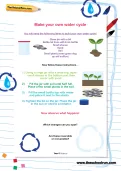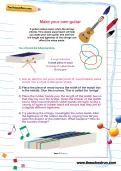A prefix is a string of letters added to the beginning of a root word, changing its meaning. Each prefix has a meaning; sub- means ‘under’. Cut out the following words and definitions. See if you can match each words to its definition.
or
Register to add to your saved resources
Already a subscriber? to view this content.
A prefix is a string of letters added to the beginning of a root word, changing its meaning. Each prefix has a meaning; anti- means ‘against’. Cut out the following words and definitions. See if you can match each words to its definition.
or
Register to add to your saved resources
Already a subscriber? to view this content.
This Year 4 English worksheet was created by an experienced primary school teacher to help your child understand and practise using apostrophes for singular and plural possession.
or
Register to add to your saved resources
Already a subscriber? to view this content.
For this investigation you will need to ask a parent or adult if you can borrow some glass bottles (milk bottles are ideal). Remember to be careful when handling glass and ask an adult to help you clean the bottles first.
or
Register to add to your saved resources
When the roads are slippery in winter we spread grit and then salt on them. But is salt the most effective solid we could use? Conduct this simple experiment to investigate!
or
Register to add to your saved resources
Already a subscriber? to view this content.
Look at this list of different foods and drinks. Which ones do you think will harm your teeth? Which ones do you think are less harmful and may even help your teeth? Colour in the tooth-friendly foods green and the ones that might harm your teeth red.
or
Register to add to your saved resources
Already a subscriber? to view this content.
In this investigation you are going to see if water can move – or does it just change?
or
Register to add to your saved resources
Look at these pictures of houses. What are they are made from? What do you think it might be like to live in these houses in hot or cold weather? Let's investigate which materials would not be good to use to build a house.
or
Register to add to your saved resources
Already a subscriber? to view this content.
Evaporation is the process by which a liquid such as water turns into a gas. In this simple experiment you will investigate how this process takes place.
or
Register to add to your saved resources
Already a subscriber? to view this content.
Look at these pictures of different musical instruments. Which part is vibrating to make the sounds we hear – is it the skin, strings, metal, wood or air inside the instrument? Record which you think it is below each picture.
or
Register to add to your saved resources
Already a subscriber? to view this content.
When we eat food our bodies break it down so that we can live. Food is our fuel and gives our bodies the things we need. This process is called digestion. Can you read the statements below and cut them out? Try to arrange them in the correct order to show the process of digestion.
or
Register to add to your saved resources
Already a subscriber? to view this content.
Look at these cards. Cut them out and then sort them according to whether you think they are a solid, a liquid or a gas. Be careful…some have been put in to challenge you!
or
Register to add to your saved resources
Already a subscriber? to view this content.
Try this simple experiment at home to investigate the pitch of sound you can make using a ruler.
or
Register to add to your saved resources
Already a subscriber? to view this content.
Unfortunately human activities can have negative impacts on habitats and the animals that live in them. This investigation will help you to understand the impact of an oil spill on our ocean habitats.
or
Register to add to your saved resources
Already a subscriber? to view this content.
Choose a selection of small electrical objects, preferably two-battery operated. Look closely at how the batteries are arranged. Open up a plug and look at the wires, all going in different directions. Can you work with your adult helper to put the plug back together? If you have an electricity meter clock, look at the dial turning and how much electricity you are using.
or
Register to add to your saved resources
Already a subscriber? to view this content.
When sounds are generated by objects, something moves or vibrates. Collect about 10 objects that make a noise (they don’t have to be musical instruments) and see if you can answer these questions.
or
Register to add to your saved resources
Already a subscriber? to view this content.
This simple investigation demonstrates how sound can be amplified and made louder.
or
Register to add to your saved resources
Already a subscriber? to view this content.
We often drink fizzy drinks such as lemonade and cola. These are made using carbon dioxide. In this simple experiment, you will be able to make raisins dive up and down in a glass by making your own carbon dioxide!
or
Register to add to your saved resources
Already a subscriber? to view this content.
Build your own water cycle and investigate reversible and irreversible changes.
or
Register to add to your saved resources
Already a subscriber? to view this content.
A guitar makes music when the strings vibrate. This simple experiment will help you make your own guitar and see how the length and tightness of the strings can affect the notes made.
or
Register to add to your saved resources
